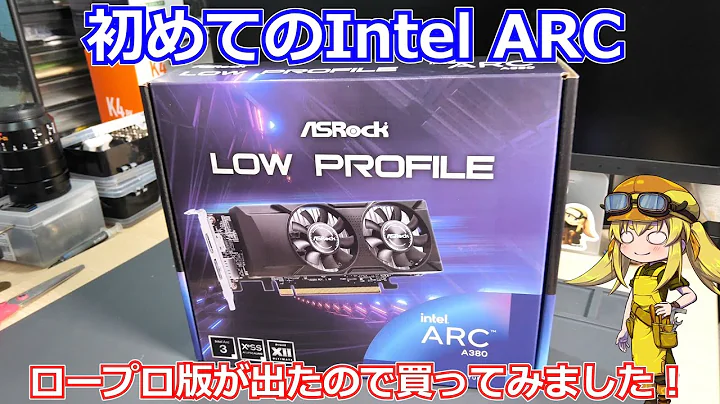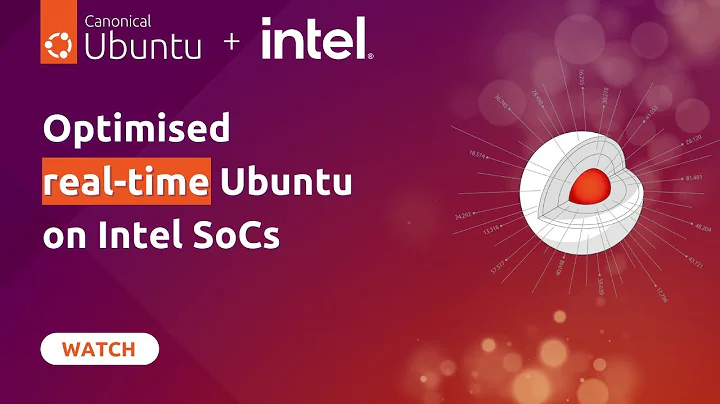Overcoming Challenges in Large Organizations: Insights from an Intel Consultant
Table of Contents:
- Introduction
- Background of Steve Remsen
- Challenges within Large Organizations
- Breaking Down Silos in Companies
- The Importance of Change Management
- Combining Technical Skills with Business Needs
- Motivating and Engaging Millennials in the Workplace
- The Future of Intel's Consulting Arm
- Conclusion
- Resources
Introduction
In this article, we will explore the insights shared by Steve Remsen, an internal consultant at Intel, on the challenges faced by large organizations and the strategies to overcome them. We delve into the importance of breaking down silos, implementing change management, combining technical skills with business needs, and engaging millennials in the workplace. Additionally, we discuss the potential future expansion of Intel's consulting arm to cater to external customers.
Background of Steve Remsen
Steve Remsen is an accomplished professional with a Ph.D. in physics and a part-time MBA student. He currently works at Intel as an internal consultant, focusing on business process management, Project Management, and change management. Steve is also a Lean Six Sigma Black Belt and takes pride in driving successful transformations within Intel.
Challenges within Large Organizations
Steve highlights one of the biggest challenges faced by large organizations like Intel - the difficulty of replicating success. With various business units working independently, silos are built that hinder collaboration and hinder the sharing of best practices. Steve's role as an internal consultant allows him to bridge these gaps and connect teams from different parts of the company, ensuring that success is replicated and innovations are effectively implemented.
Breaking Down Silos in Companies
Silos can be a major obstacle to progress within organizations. They create barriers to communication and collaboration, hindering the flow of information and inhibiting cross-functional problem-solving. Steve and his team at Intel actively work towards breaking down these silos by serving as connectors between different business units. By fostering communication and collaboration, they enable the free exchange of ideas and ensure that knowledge is shared throughout the organization.
The Importance of Change Management
Change management plays a crucial role in any organization undergoing transformation. Steve emphasizes the vital role of change management in implementing new ideas and strategies. He notes that good ideas do not implement themselves; they require a structured process. Steve's team at Intel focuses on process-driven change management, utilizing methodologies such as Kotter and ADKAR to drive successful transformations. By emphasizing process-orientation, they ensure that change is implemented effectively and scaled across the organization.
Combining Technical Skills with Business Needs
For organizations like Intel, which operate in the tech space, it is essential to connect technical professionals with the business objectives. Steve mentions that one of his roles as a Lean Six Sigma mentor is to help engineers understand the value of their work in terms of dollars and cents. By aligning technical efforts with business value, the engineers gain a clear understanding of their contributions and are better equipped to optimize processes and drive tangible results.
Motivating and Engaging Millennials in the Workplace
With a significant portion of the workforce comprising millennials, it is crucial to understand their mindset and cater to their needs. Steve acknowledges that Intel, traditionally viewed as a career-focused company, has had to adapt to the changing expectations of younger employees. Millennials Seek impactful work that aligns with their personal values. To keep millennials engaged, Intel provides opportunities to work on exciting projects in areas such as IoT, data-centric solutions, and emerging technologies. This approach bridges the gap between technology and business needs, resonating with the younger generation.
The Future of Intel's Consulting Arm
Considering the proficiency and insights gained through their internal consulting endeavors, Intel is exploring the possibility of extending their consulting services to external customers. As the company continues to develop expertise in areas such as process mining and digital transformation, the demand for their insights from external organizations is growing. This potential expansion would allow Intel to share their knowledge with a broader audience and further establish themselves as leaders in their industry.
Conclusion
From Steve Remsen's insights, it is evident that large organizations such as Intel face unique challenges in driving innovation and change. Breaking down silos, implementing effective change management, and bridging the gap between technical skills and business needs are critical factors in ensuring success. Additionally, understanding and engaging the millennial workforce is essential for long-term growth. With a focus on these key areas, organizations can navigate the complexities of transformation and thrive in a rapidly evolving business landscape.
Resources
FAQ
Q: How does Intel overcome silos within the organization?
A: Intel addresses silos by actively bridging gaps and fostering communication between business units. By serving as connectors and promoting collaboration, Intel ensures the free flow of information and knowledge sharing throughout the company.
Q: What methodologies does Intel use for change management?
A: Intel utilizes methodologies such as Kotter and ADKAR as part of their process-driven change management approach. These methodologies provide a structured framework for implementing change effectively and scaling it across the organization.
Q: How does Intel engage millennials in the workplace?
A: Intel offers millennials opportunities to work on impactful projects in areas such as IoT, data-centric solutions, and emerging technologies. By aligning their work with personal values and providing meaningful experiences, Intel keeps millennials engaged and motivated.
Q: Will Intel extend its consulting services to external customers?
A: Intel is considering the expansion of its consulting arm to cater to external customers. With their proficiency in areas like process mining and digital transformation, there is growing interest in Intel's insights from other organizations.
Q: What is the future outlook for Intel's consulting endeavors?
A: Intel aims to continue sharing their knowledge and expertise with a broader audience. As the demand for consulting services grows, Intel's expansion into external markets seems increasingly likely. This would further establish Intel as a leader in their industry.
 WHY YOU SHOULD CHOOSE TOOLIFY
WHY YOU SHOULD CHOOSE TOOLIFY

























